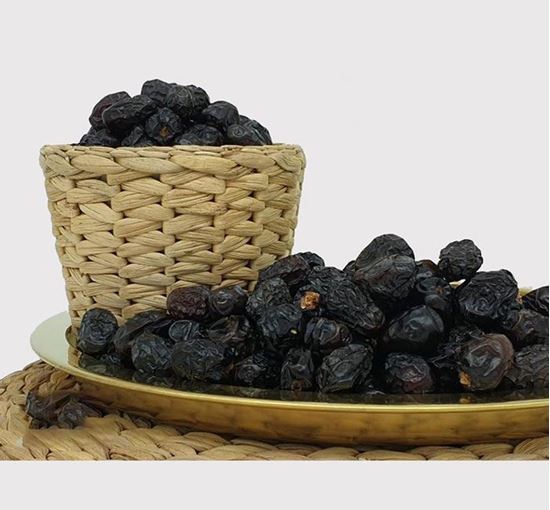
Kurma Supplier: Main Export Destinations for Malaysian Dates
Introduction
Kurma, also known as dates, is a popular fruit in Malaysia that holds cultural and religious significance. In this blog post, we will explore the role of Kurma supplier and delve into the main export destinations for Malaysian dates. Understanding these aspects is crucial for both suppliers and consumers to appreciate the global reach and demand for this nutritious and delicious fruit.
Kurma Suppliers: Meeting Global Demand
Kurma suppliers play a vital role in meeting the global demand for dates, ensuring a steady supply of this versatile fruit to various markets around the world. These suppliers, often working in collaboration with date producers, fulfill the requirements of both domestic and international customers.
1. Date Producers and Farmers
At the heart of the Kurma supply chain are the date producers and farmers. They cultivate and harvest dates from palm trees, carefully nurturing the fruit to ensure optimal quality and flavor. These producers can be small-scale farmers or large-scale plantations, depending on the region and production capacity.
2. Kurma Wholesalers and Distributors
After harvesting, the dates are typically sold to Kurma wholesalers and distributors. These intermediaries play a crucial role in connecting the producers with the broader market. They purchase large quantities of dates from multiple producers and aggregate them to meet the demands of retailers, exporters, and other customers.
Kurma wholesalers and distributors ensure that there is a consistent supply of dates throughout the year, working closely with producers to maintain quality and freshness. They also handle sorting, grading, and packaging of the dates to meet the specific requirements of different customers and market segments.
3. Exporters and International Traders
Exporters and international traders are responsible for facilitating the global trade of Malaysian dates. They collaborate with Kurma wholesalers and distributors to source dates and export them to different countries. These exporters have in-depth knowledge of international markets, including import regulations, consumer preferences, and distribution channels.
Exporters ensure that the dates comply with the relevant quality standards and undergo proper packaging and documentation processes for international shipment. They also navigate trade agreements, customs procedures, and logistics to ensure a smooth and efficient export process.
Main Export Destinations for Malaysian Dates
Malaysian dates have gained popularity in various international markets due to their unique flavor, quality, and nutritional value. Let us explore some of the main export destinations for Malaysian dates:
1. Middle Eastern Countries
Middle Eastern countries, including Saudi Arabia, United Arab Emirates, Qatar, and Bahrain, are significant importers of Malaysian dates. These countries have a strong cultural and religious connection with dates and consume them in large quantities, particularly during the holy month of Ramadan. Malaysian dates are known for their excellent quality and taste, making them a popular choice in Middle Eastern markets.
2. Southeast Asian Countries
Neighboring Southeast Asian countries, such as Indonesia, Singapore, and Brunei, are also important export destinations for Malaysian dates. These countries have a sizable Muslim population that values dates as a traditional and nutritious food item. Malaysian dates are favored for their freshness, variety, and accessibility, making them a preferred choice in the region.
3. European and Western Countries
European and Western countries, including the United Kingdom, Germany, France, and the United States, have seen an increased demand for Malaysian dates in recent years. This can be attributed to the growing interest in healthy and natural foods, as well as the multicultural diversity of these markets. Malaysian dates are recognized for their organic cultivation practices, superior taste, and health benefits, appealing to health-conscious consumers in these regions.
4. African and Asian Countries
Malaysian dates also find their way to African and Asian countries, such as Nigeria, South Africa, India, and Pakistan. These countries have a long-standing tradition of consuming dates and appreciate the quality and variety offered by Malaysian suppliers. Malaysian dates are often exported to these nations in both fresh and dried forms, catering to the diverse preferences of consumers.
Conclusion
Kurma supplier plays a vital role in meeting the global demand for Malaysian dates. Through the collaboration of date producers, wholesalers, distributors, exporters, and international traders, Malaysian dates reach various export destinations around the world. Middle Eastern countries, Southeast Asian countries, European and Western countries, as well as African and Asian countries, are among the main markets for Malaysian dates. The popularity of Malaysian dates can be attributed to their unique flavor, quality, and nutritional value. By understanding the role of Kurma suppliers and the main export destinations, we can appreciate the global reach and significance of this beloved fruit.
Key Highlights:
– Kurma suppliers, including date producers, wholesalers, distributors, exporters, and international traders, work together to meet the global demand for dates.
– Date producers and farmers cultivate and harvest dates, ensuring optimal quality and flavor.
– Kurma wholesalers and distributors aggregate dates from multiple producers, sorting, grading, and packaging them to meet market demands.
– Exporters and international traders facilitate the global trade of Malaysian dates, ensuring compliance with quality standards and export procedures.
– The main export destinations for Malaysian dates include Middle Eastern countries, Southeast Asian countries, European and Western countries, and African and Asian countries.
– Middle Eastern countries have a strong cultural and religious connection with dates, consuming them in large quantities, particularly during Ramadan.
– Southeast Asian countries with sizable Muslim populations value Malaysian dates for their freshness, variety, and accessibility.
– European and Western countries have seen increased demand for Malaysian dates due to the growing interest in healthy and natural foods.
– African and Asian countries appreciate the quality and variety offered by Malaysian date suppliers.
– The popularity of Malaysian dates can be attributed to their unique flavor, quality, and nutritional value.